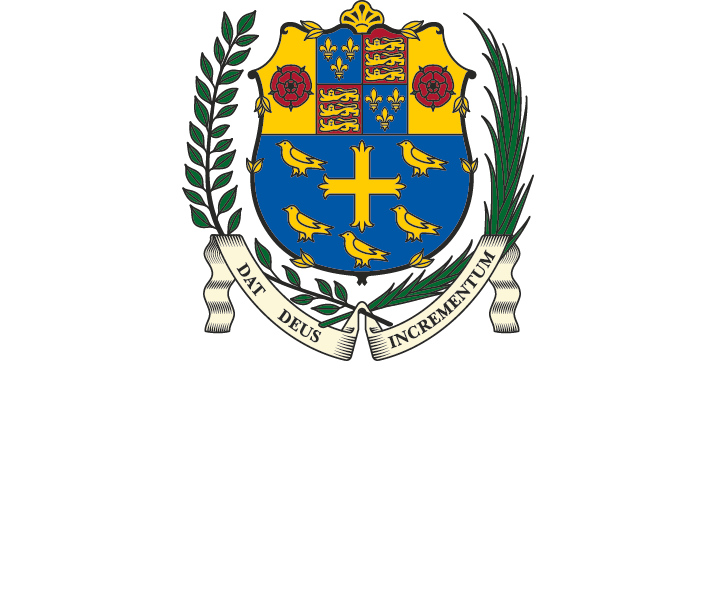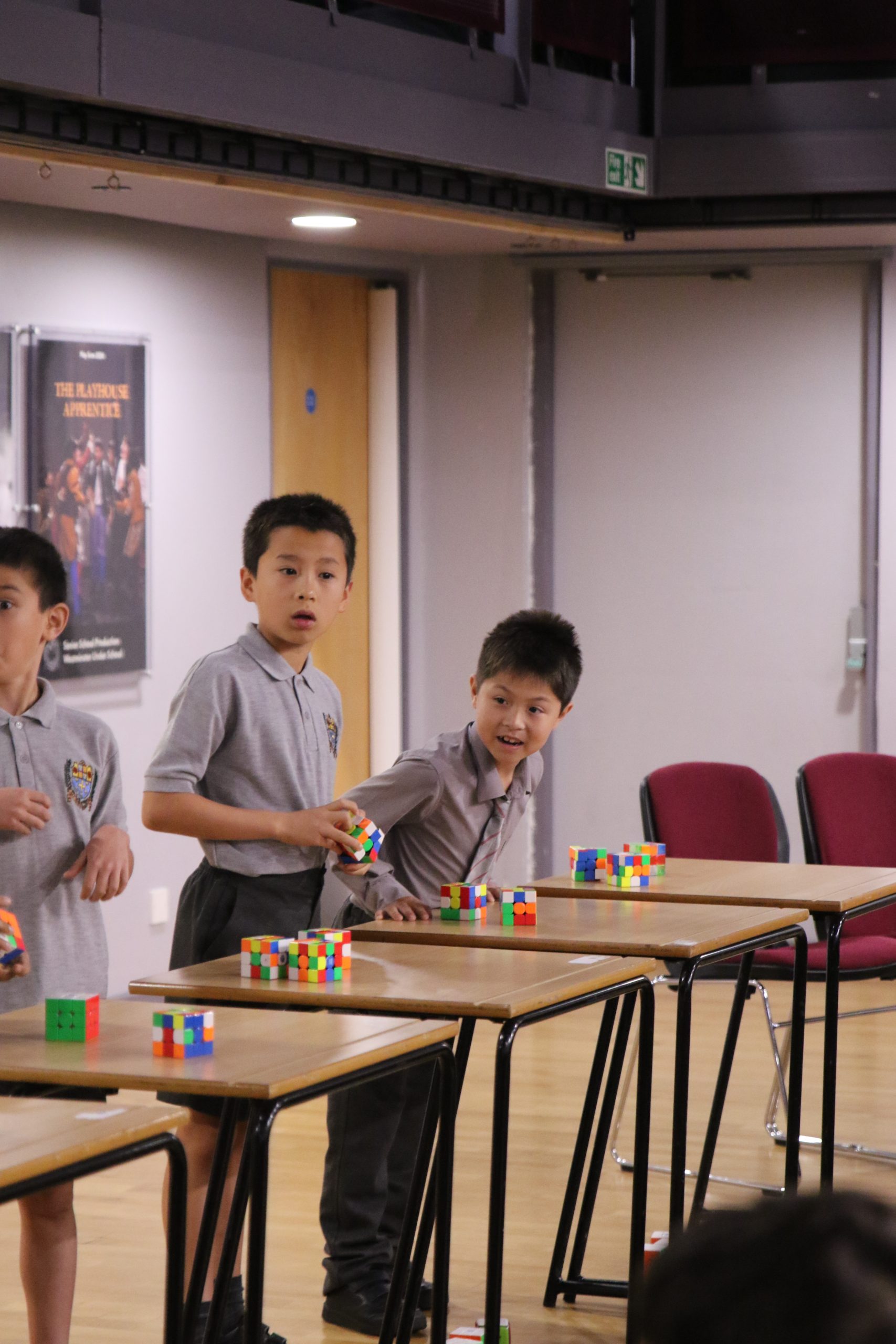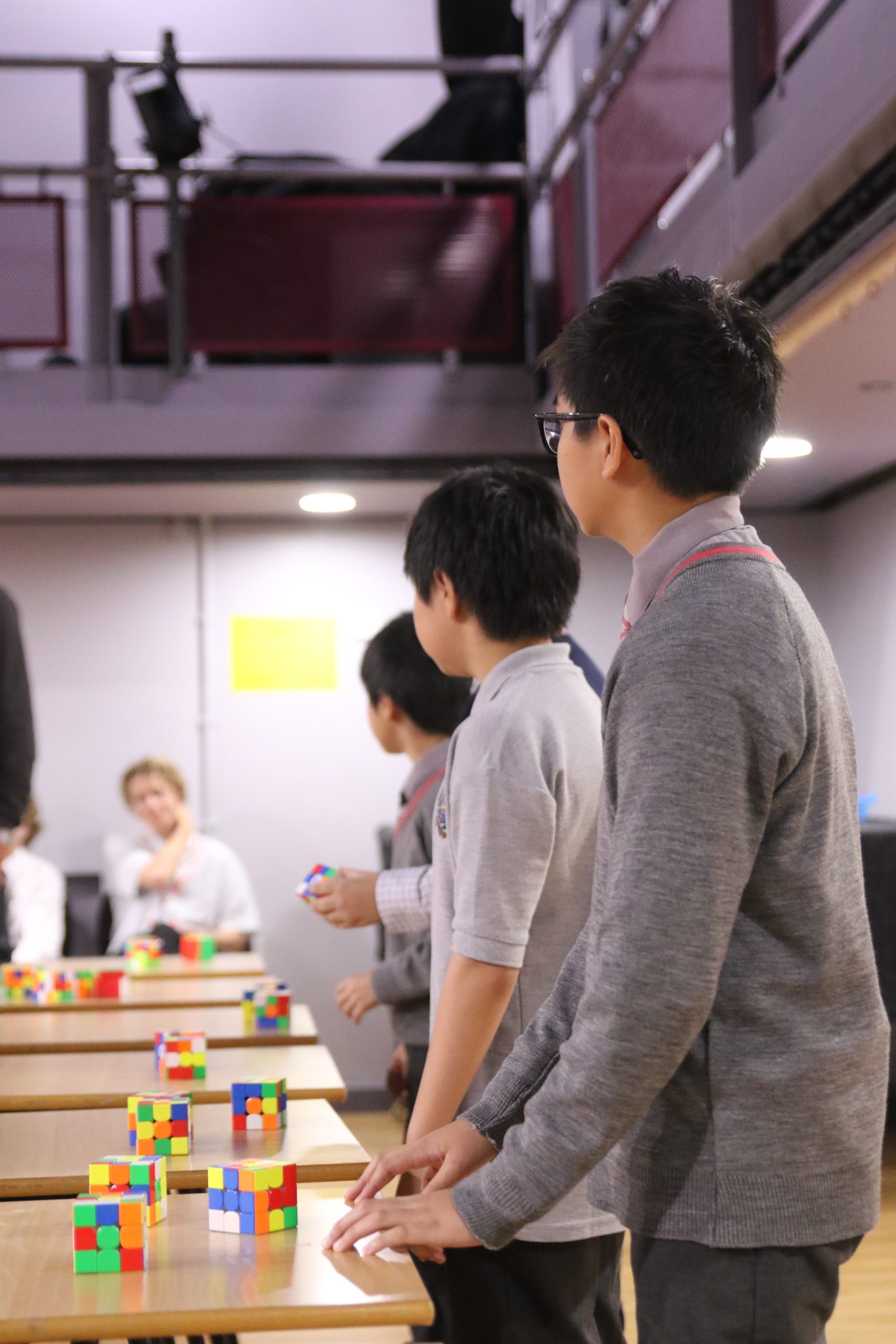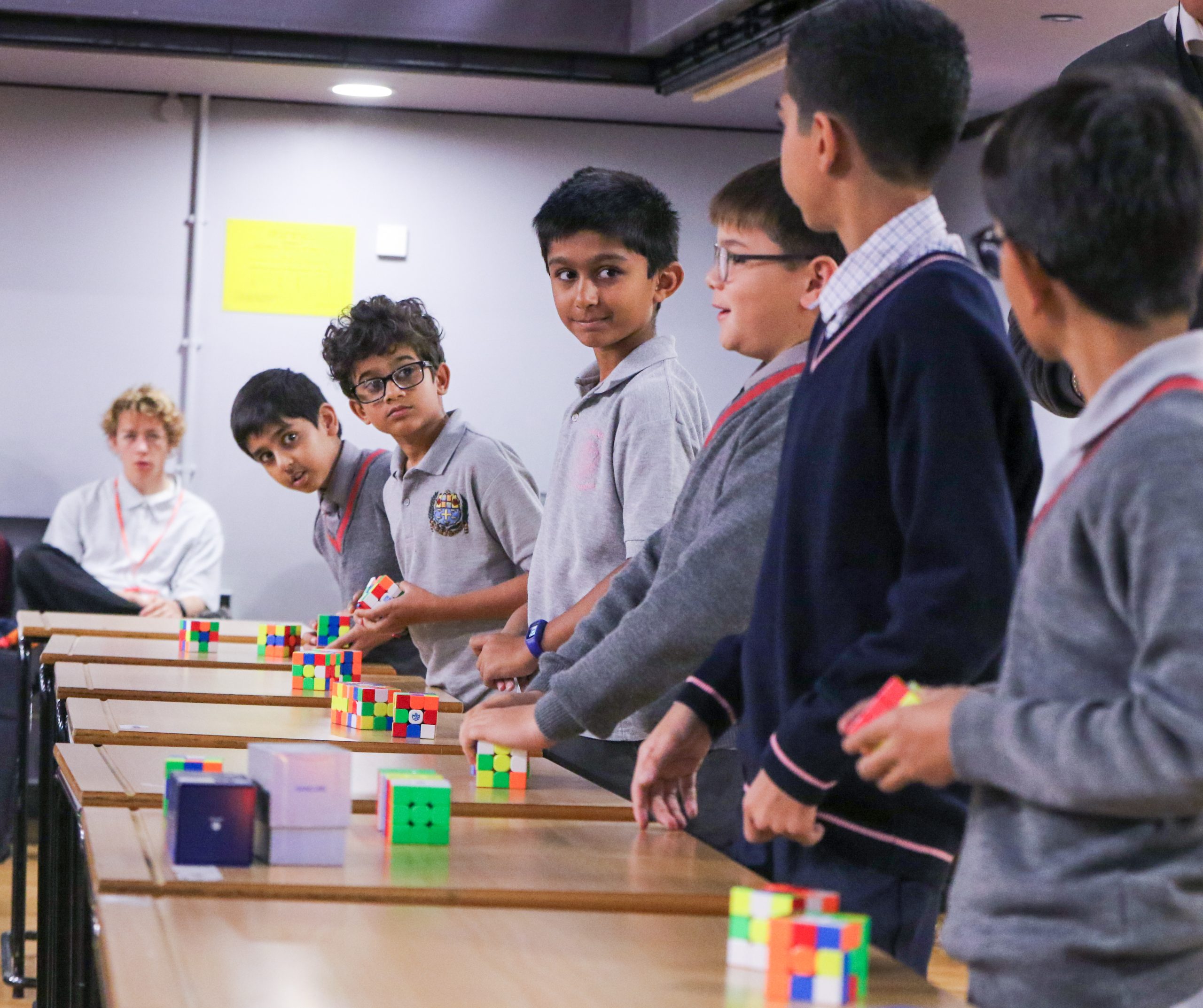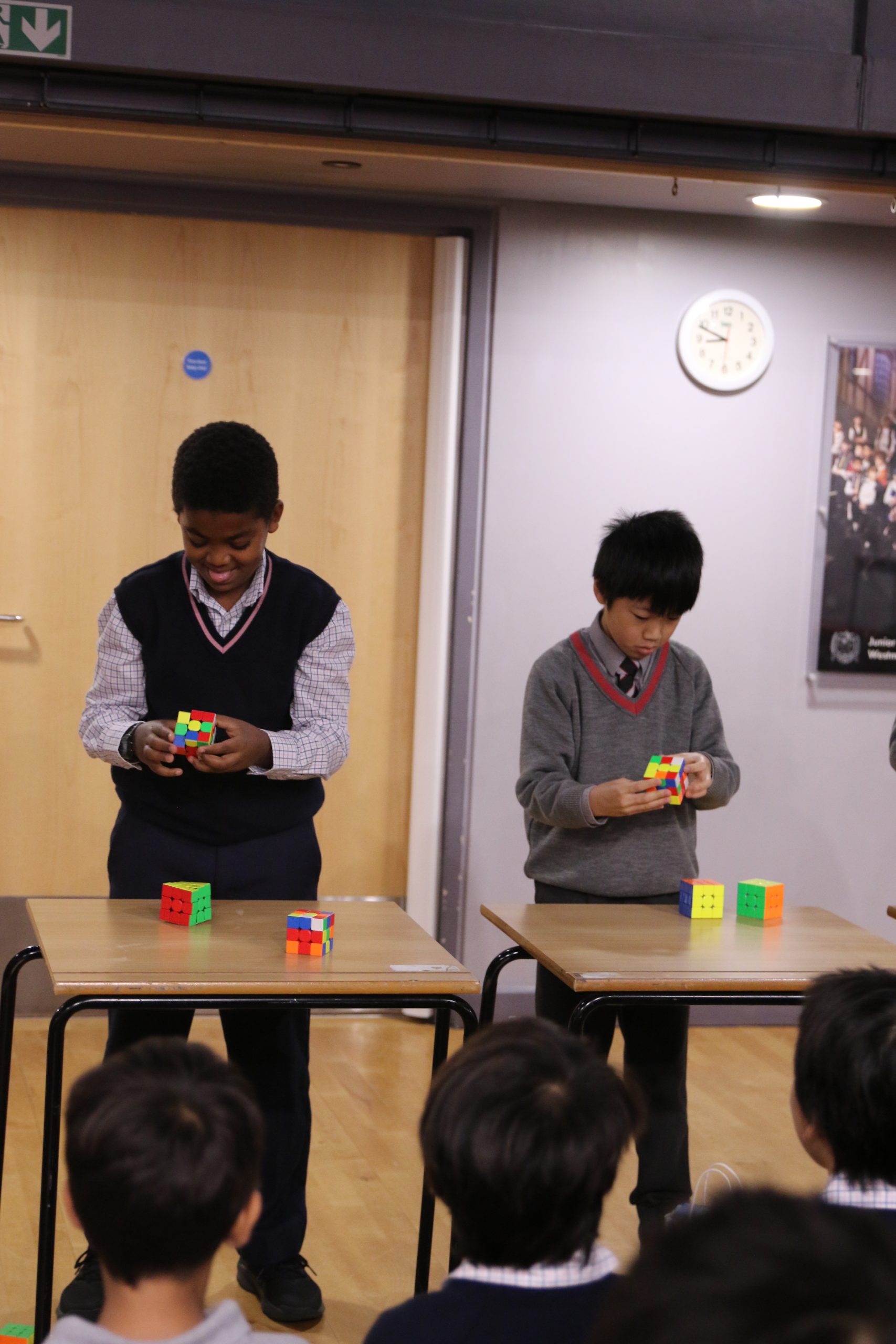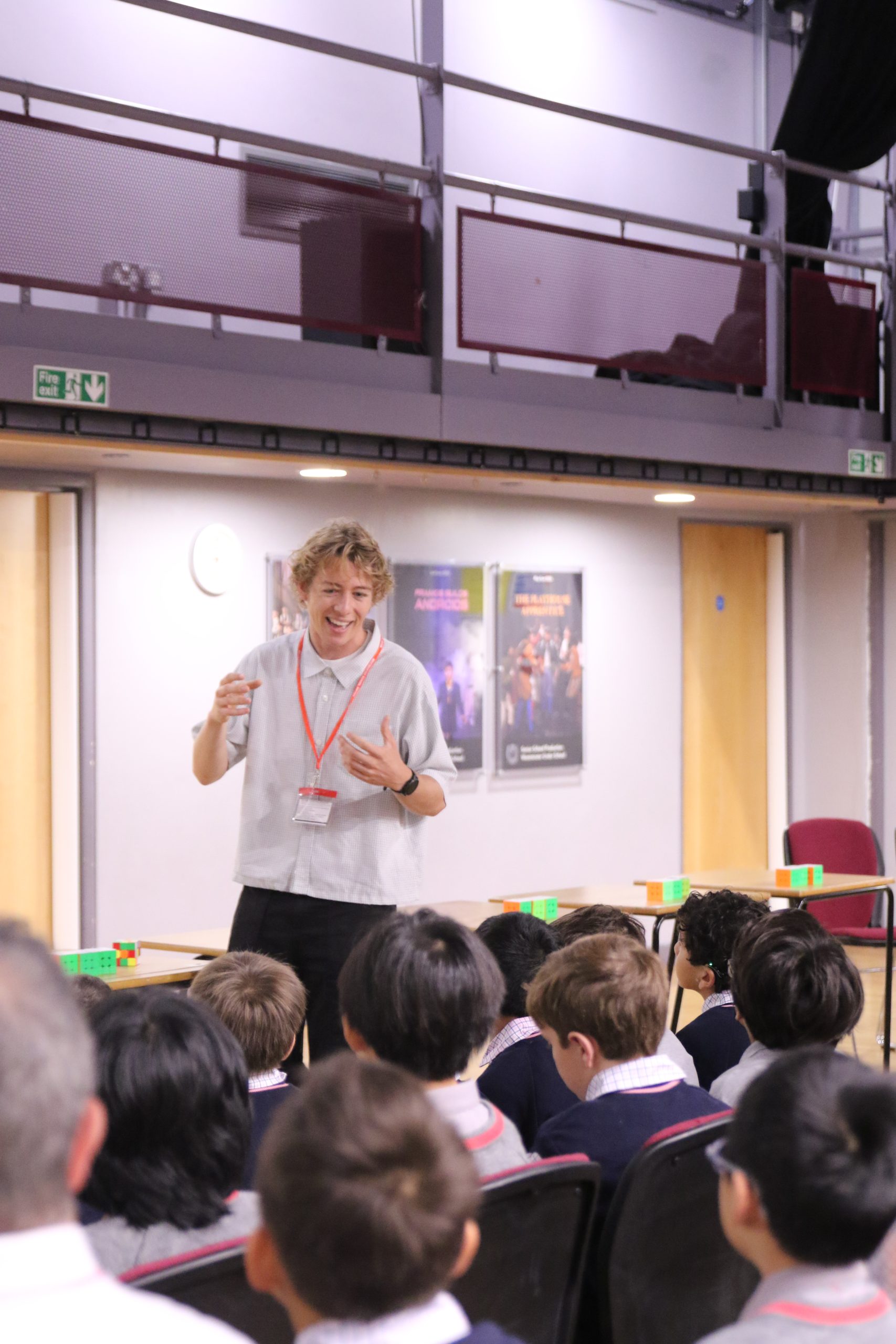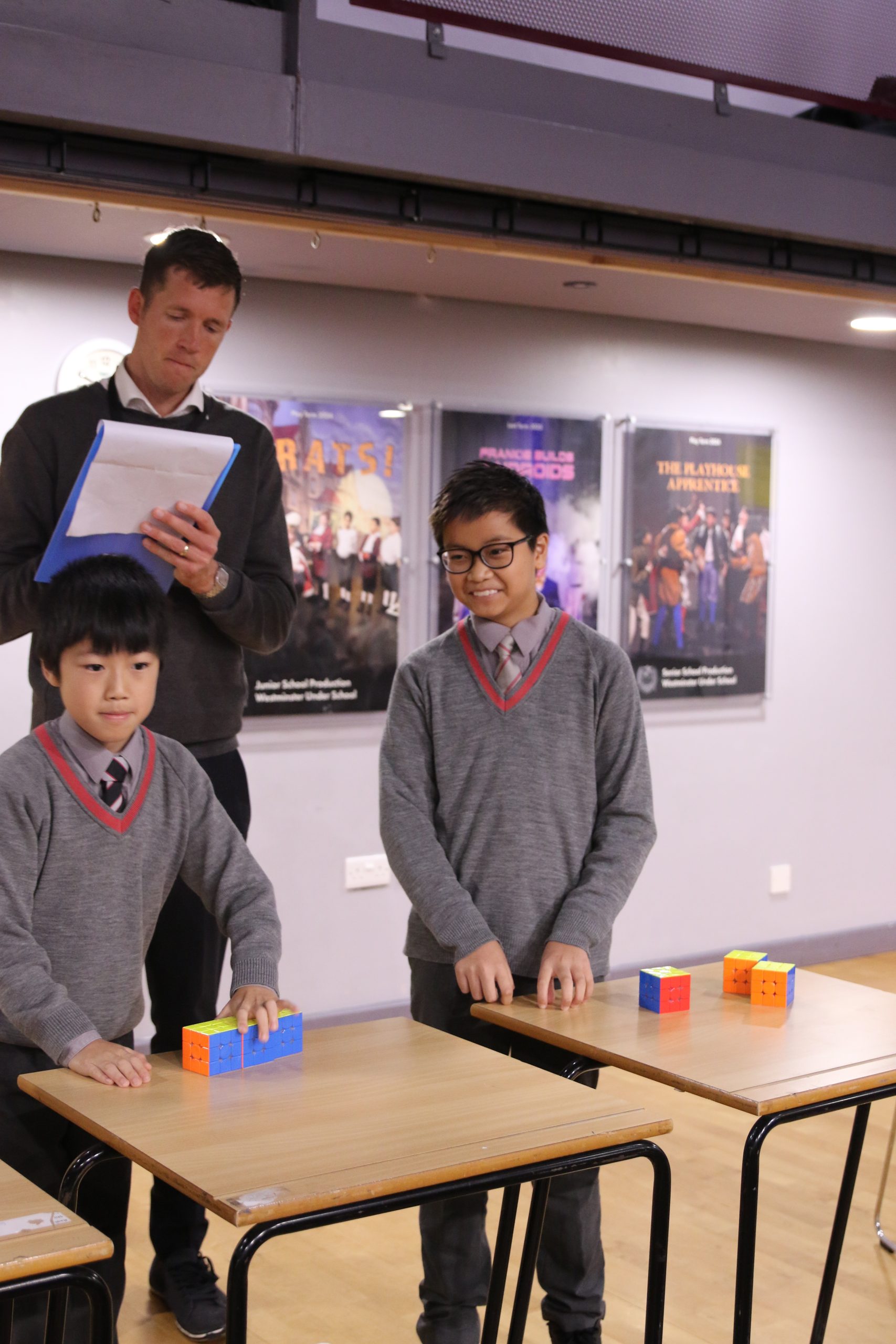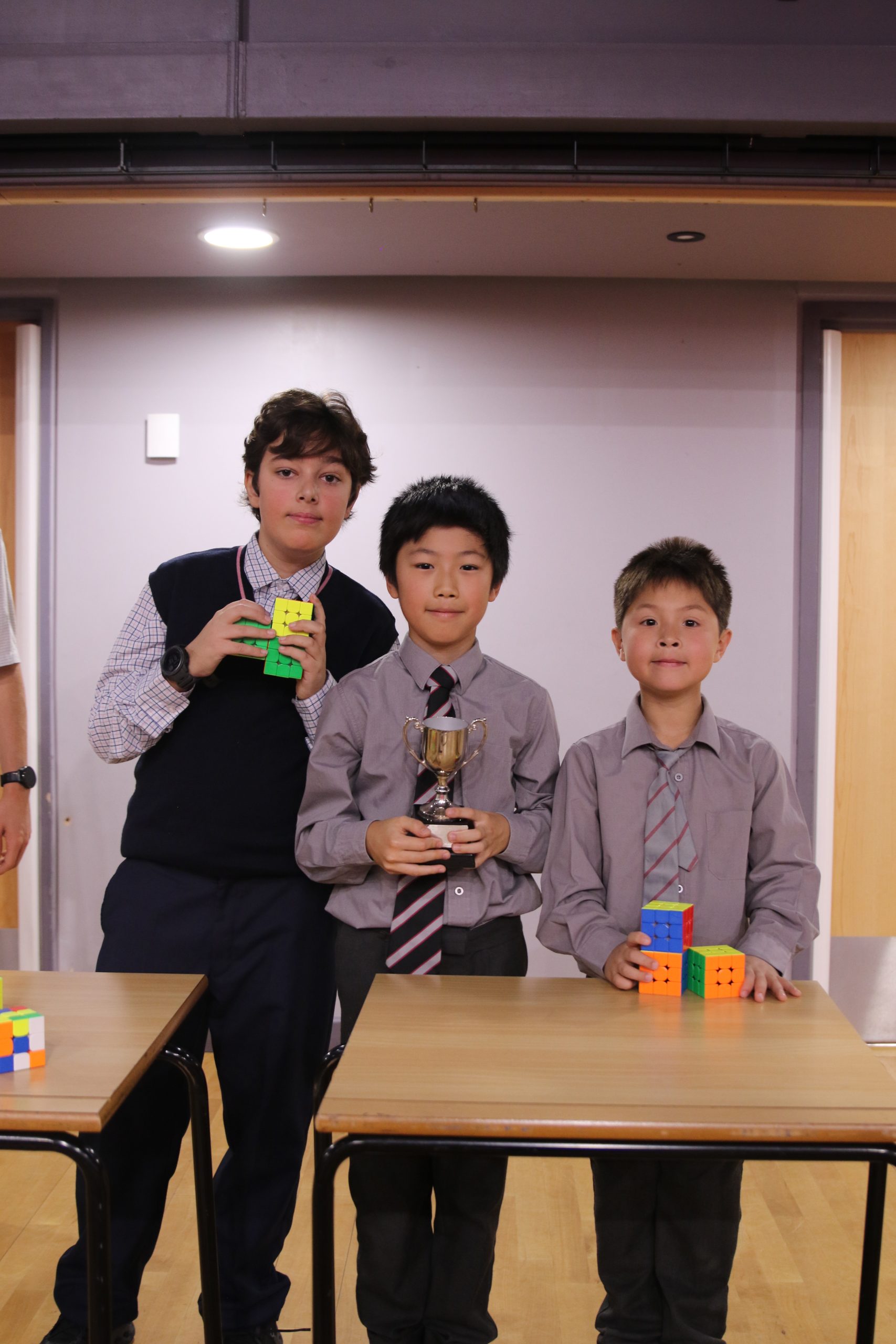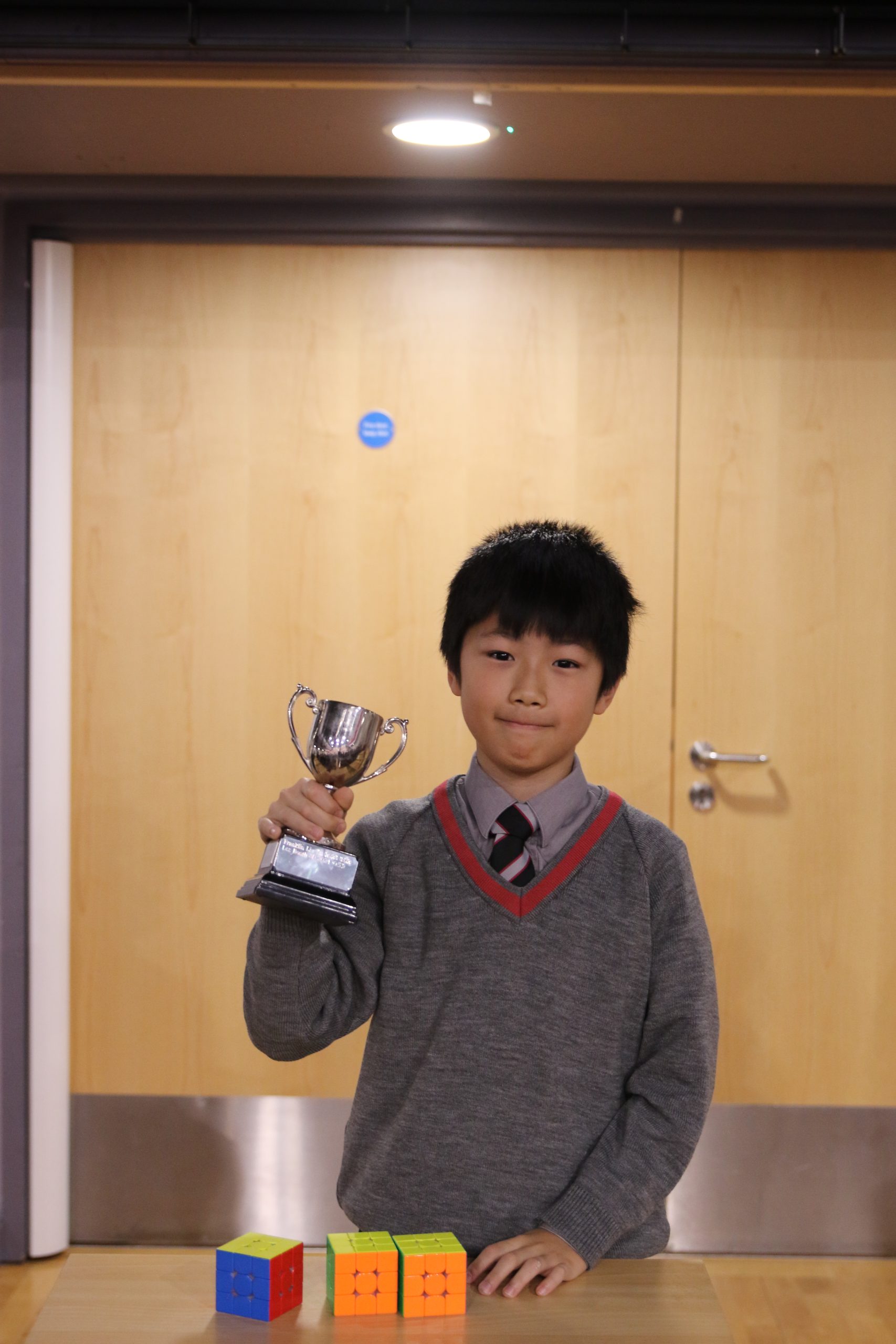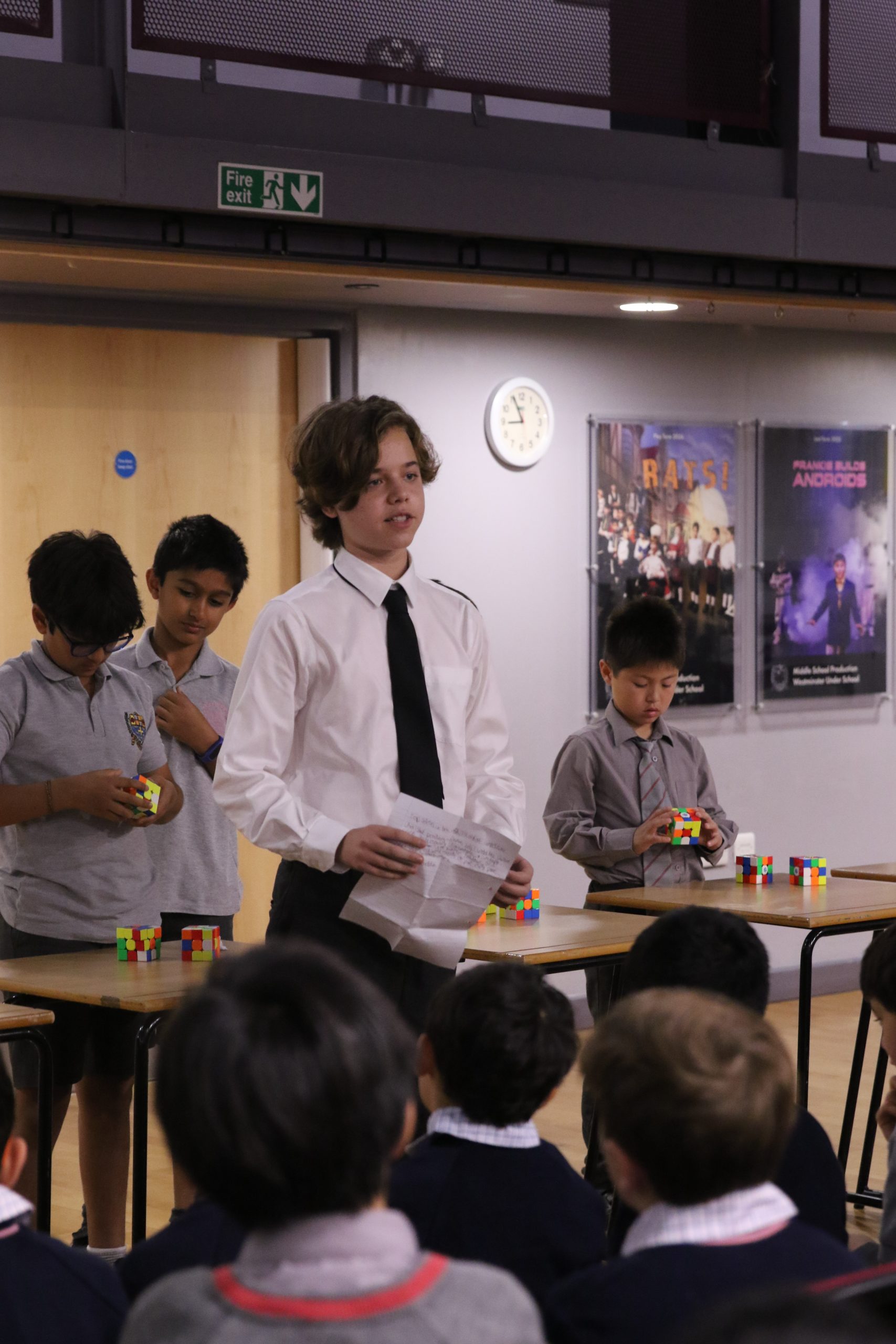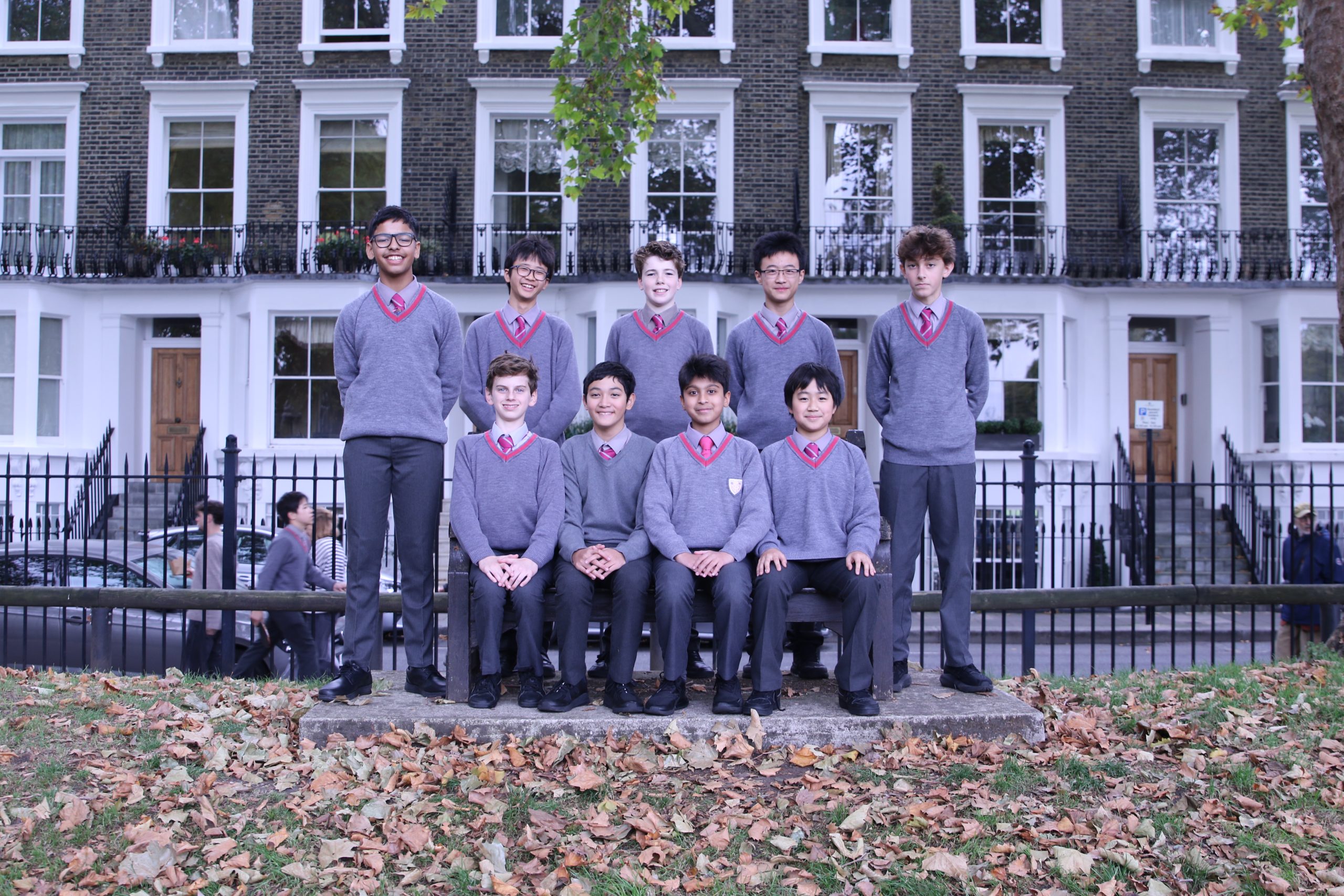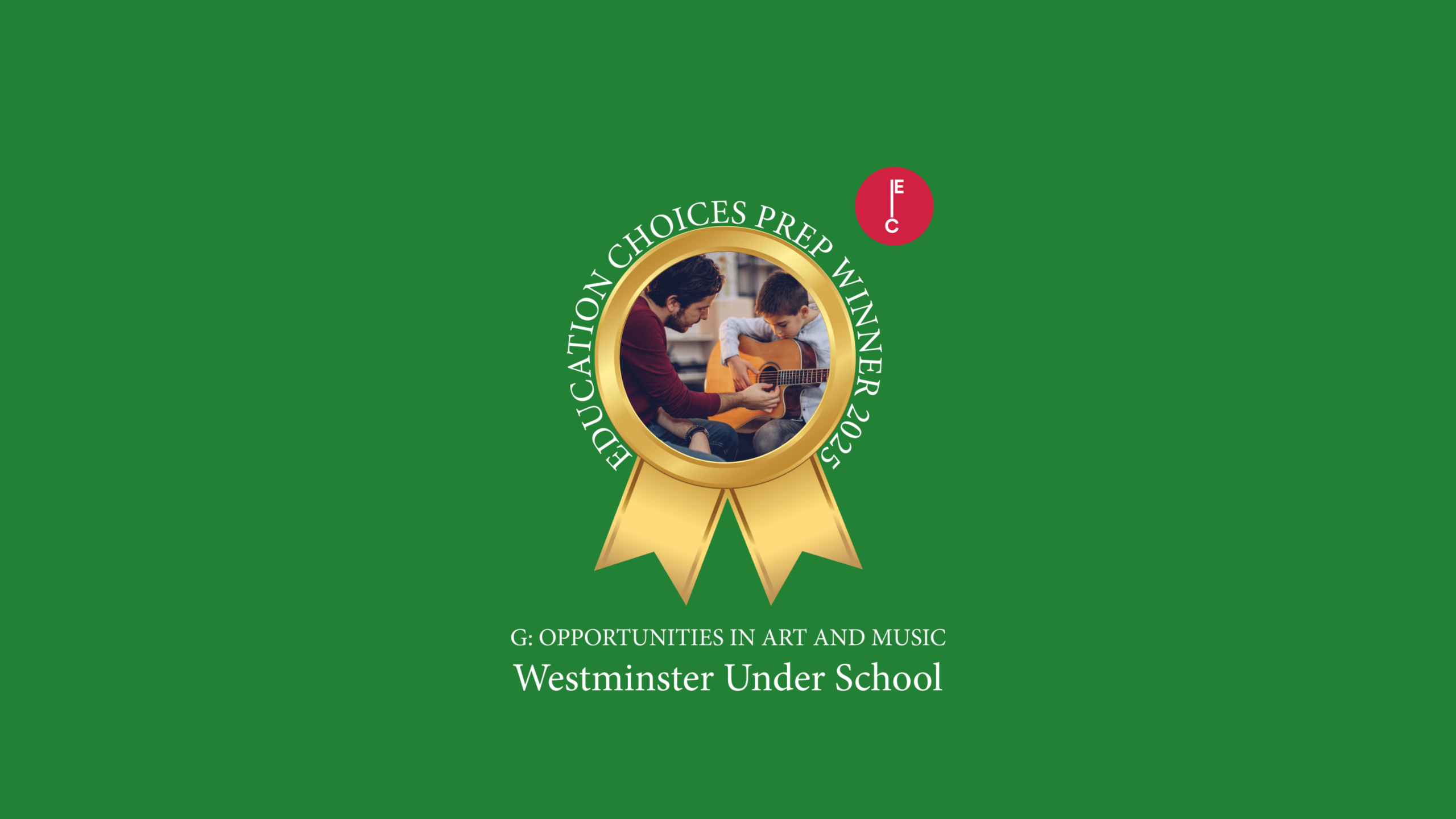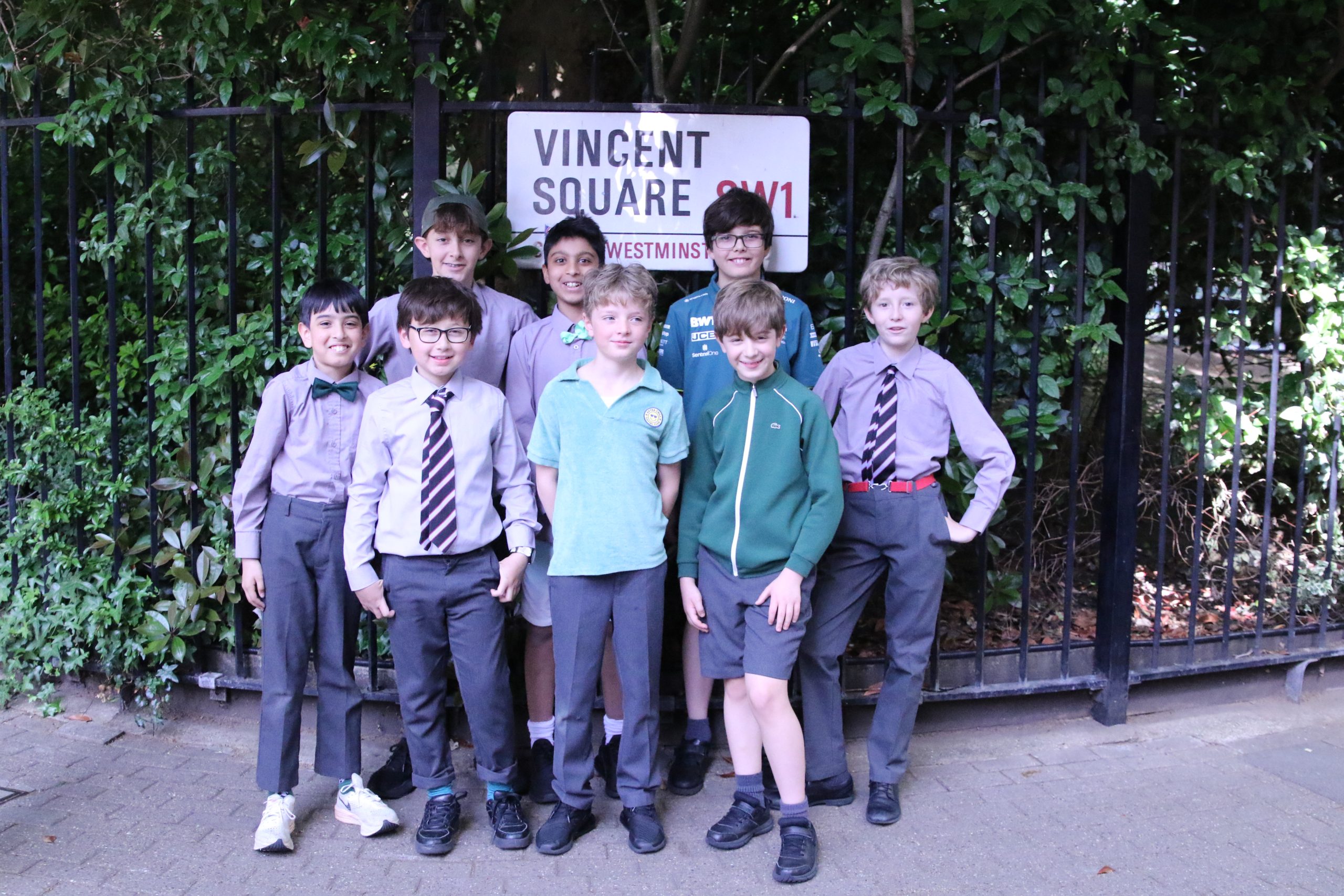Pupils demonstrate focus and speed in the annual WUS Speedcubing Competition.
Focus, speed and a touch of friendly rivalry filled this year’s WUS Speedcubing Competition, as twenty-nine pupils raced to solve three cubes in record time. One of the most anticipated events of the school calendar, it was a morning full of excitement and impressive solving, with Ricky finishing first at 49 seconds.
The Speedcubing Competition follows a clear format that rewards both accuracy and speed. Each pupil solves three standard 3×3×3 cubes in succession, with their average time determining the final score. Competitors, ranging from Year 3 to Year 8, complete all three solves independently and under timed conditions.
The event encourages a balance of precision and calm thinking under pressure. Pupils draw on logic, spatial reasoning and memory as they apply complex algorithms to reach each solution. It is as much an exercise in focus and perseverance as it is in dexterity, reflecting both the mathematical and mindful aspects of problem-solving.
After the initial rounds, the four fastest pupils progressed to the final, where consistency and composure proved decisive. The results were as follows:
- Ricky – 49 seconds
- Michael – 57 seconds
- Anderson – 59 seconds
- Batu – 1 minute 6 seconds
Congratulations to Ricky, whose name and time will join the roll of winners dating back 2019. To qualify for the competition, pupils must be able to solve a cube in under one minute, though, as organiser Mr Matthews, Head of Maths, admits, his own time remains closer to two.
This year, pupils once again heard from George Scholey, professional speedcuber, UK Champion and three-time Guinness World Record holder. His talk on the value of pursuing your passions resonated deeply with the whole school. Among his key messages were that progress and success are sustained through practice and should be measured against one’s own improvement rather than others’; that there is no such thing as being too cool to care deeply about something; and that mistakes are essential steps towards success.
For finalist Batu, the competition was a chance to put a year’s worth of practice in to action.
“I learnt cubing in February 2024, after watching the Speedcubers documentary on Netflix. I learnt to solve a cube two days later and extended it to bigger cubes, such as the 5×5×5, in less than a week. I became interested in big cubes very early, which taught me patience.
I attended my first official competition in April 2024 and saw for the first time how large and welcoming the cubing community is.
I joined WUS in September 2024 and realised that there were far more cubers, a big jump from just one other cuber in my previous school. I decided to create a Cubing Club at the start of the school year to encourage anyone interested in cubing and to share tips with one another.
Cubing is a very fun hobby and a great way to reduce screen time. I recommend joining the cubing community and, after a few months, perhaps attending an official WCA competition. The cubing community is very warm, as I learnt from experience.”
Third-place holder Anderson (Year 5) said:
“I started cubing last October after watching the WUS Speedcubing Competition. I practised for about an hour a day in the lead-up and I’m really happy with my time! My past experiences from other competitions taught me to learn from failure, and George Scholey’s words, that you can’t succeed unless you make mistakes, really helped me stay focused. I did feel nervous, but I had a lot of fun.”
Speedcubing offers much more than entertainment. It strengthens problem-solving, spatial reasoning, memory and fine motor skills, while teaching patience and resilience through trial and error. It is, in many ways, the perfect blend of mathematical reasoning and creative play, and, as Mr Matthews adds, “it’s portable, social, and keeps them happily away from screens, and, just as importantly, cubing is fun.”
Ricky, this year’s winner reflected what cubing has taught him:
“The moment I won the cube competition is a memory I will never forget. After putting down my last cube, the adrenaline faded and was replaced by pride and happiness. I started cubing four years ago, when the puzzle first caught my attention. I was fascinated by all the possibilities, and after a week or two, my brother Alex finished teaching me how to solve it. About half a year later, I entered my first school competition where unfortunately, I didn’t make it into the finals. Having a real cuber visit our school definitely inspired me, seeing someone in person turn a hobby into a career. Last year, I placed third with one of my best sets of solves at the time. Now I practise two to three times a week and have dropped my average by eight seconds in the last month.
Cubing has taught me to keep calm, both when learning new algorithms and when solving under pressure in front of friends and family. It’s also helped me make friends who are just as passionate as I am. If you haven’t already, I’d recommend giving cubing a try, whether it’s for the satisfaction of solving, as a hobby, or simply to connect with others who share your interests.”
From modest beginnings, cubing has become a distinctive part of Westminster Under School life.
As Ian Scheffler, author of Cracking the Cube, wrote:
“There’s a fundamental human need to make order out of disorder.”
